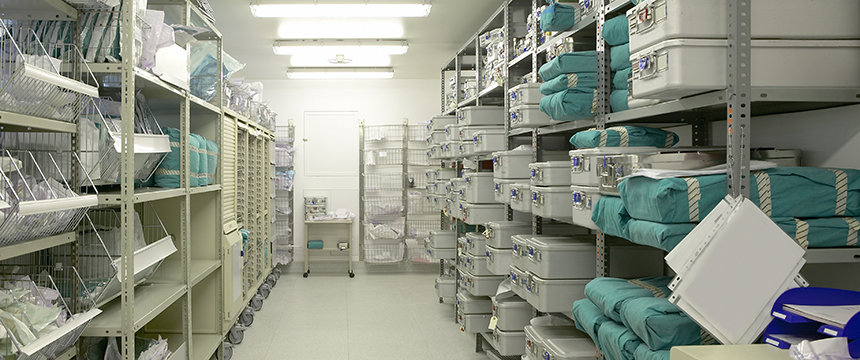Mexican Government's Actions to Streamline the Purchase, Imports and Authorization of Health Supplies, Drugs, and Medical Devices during the Coronavirus Emergency

Due to the current COVID-19 outbreak in Mexico, and the corresponding force majeure health emergency that has been declared in the country, the Mexican Government´s health services and most of the health care provided by the private sector, are requiring the urgent purchase, sale and importation of a large variety of health supplies, drugs, medical devices, testing materials, and other health and cleaning products, both in the international and local market.
The Mexican Government holds and controls the vast majority of hospitals and testing laboratories in the country, and is the main purchaser of health supplies, drugs, medical devices, and testing materials. Purchases made by the Mexican Government are ordinarily subject to strict Mexican government procurement laws, as well as to Mexican General Health Law (“GHL”) and its regulations, and the extraordinary actions and authority granted to the Ministry of Health (“MH”) in Mexico by executive orders issued under this emergency.
On March 27, 2020, President López Obrador published in the Official Gazette of the Federation, an executive order declaring specific extraordinary actions that the MH will be immediately entitled to undertake for the mitigation and control of COVID-19 (the “March 27 Decree”), in addition to those extraordinary actions already contemplated under the GHL.
Said extraordinary actions issued under the March 27 Decree include, among others, the ability for the MH to:
- Purchase all types of goods and services, nationally or internationally, including among others, medical devices, diagnostic agents, surgical and healing materials, hygiene products, as well as all sort of items and supplies needed to face the contingency, without needing to carry out a public bid process, for the amounts and concepts required to face such contingency.
- Import and authorize the importation, as well as the purchase in the national territory, of the goods and services mentioned in the paragraph above, without the need to complete any administrative procedure (sic.), for the amounts and concepts needed to face the contingency.
- Carry out other extraordinary actions that the MH may deem necessary under the emergency.
On April 1st, 2020, the Mexican Tax Administration Service (“SAT”) published in its website (to be later on officially published in the Official Gazette of the Federation), diverse administrative rules based on the March 27 Decree, in order to facilitate the customs clearance of the abovementioned goods, in importations to be made by the MH and related government entities during the emergency.
Purchases, sales and importations that are made not to supply the Mexican Government, but for supplying private health care institutions or other private businesses in the pharmaceutical, life science or health sectors in Mexico, are not ruled by Mexican Government procurement laws. Said transactions within the private sector remain subject to the general health and customs regulations applicable in Mexico. The MH and Cofepris (health regulator in Mexico) should, in our view, also be entitled to authorize emergency importations of drugs and other health supplies or products under the March 27 Decree, and other existing regulations and provisions, even in transactions to be carried out among particulars, and not only in sales made to the Mexican government. However, this should be reviewed on a case-by-case basis, as no other specific rules have been issued yet.
Companies may also explore, for their sales and importations to Mexico of the aforementioned goods for the COVID-19 emergency, the convenience or not to claim the application of other provisions already set forth in the GHL, and in other regulatory provisions and rulings available and issued by the MH before the COVID-19 emergency, including among others:
- The fact that the Regulations to the GHL for Health Supplies, also provide that the MH has the ability to authorize, in case of contingency, the importation of drugs and other health supplies without the need of health registration in Mexico;
- The provisions published by the MH on January 28, 2020, facilitating the purchase and importation of drugs from international markets without having a health registration in Mexico. This, to the extent that they already have been authorized by certain recognized foreign health regulators (including without limitation the FDA in the U.S.), and pre-qualified for their use by the World Health Organization. In this case, the interested party shall initiate the product registration process in Mexico, immediately after the authorized importation, if such registration is required under the GHL and its regulations.
- And, even though obvious, to pursue the importation and sale to Mexico of drugs, health supplies, medical devices, testing materials and other cleaning or life science products that are already registered in Mexico (if that requirement is applicable under the GHL), and that are already compliant with all Mexican health regulatory requirements and standards that may be applicable.
Having the proper advice, by combining legal expertise in health care, life science, customs and foreign trade, as well as in government procurement practice and other regulatory and transactional areas of law on a case-by-case basis, is relevant for the efficient implementation of these type of transactions in Mexico under this emergency.
Companies should also put in place and apply for the transactions mentioned above, the appropriate steps and policies to avoid falling into corrupt practices violating Mexican laws, the U.S. FCPA or other foreign laws of extraterritorial application. Entities and individuals participating in these transactions should also avoid unlawful antitrust or unfair trade practices, as well as other potentially illegal conducts restricting the offer, or artificially increasing or speculating with prices. All such potential infringements could be severely sanctioned by Mexican and other foreign authorities, with particular emphasis during this crisis.
Provisions under international treaties (such as NAFTA and, eventually, the USMCA), as well as other customs and regulatory requirements applicable in the foreign country selling and exporting the goods to Mexico (e.g., in the U.S.), and domestically, in Mexican territory, might also require specific consideration while entering into these transactions
For more information, please contact your Foley relationship partner. For additional web-based resources available to assist you in monitoring the spread of the coronavirus on a global basis, you may wish to visit the websites of the CDC and the World Health Organization.
Foley has created a multi-disciplinary and multi-jurisdictional team to respond to COVID-19, which has prepared a wealth of topical client resources and is prepared to help our clients meet the legal and business challenges that the coronavirus outbreak is creating for stakeholders across a range of industries. Click here for Foley’s Coronavirus Resource Center to stay apprised of relevant developments, insights and resources to support your business during this challenging time. To receive this content directly in your inbox, click here and submit the form.



